
Why prioritize your kidney health with a detox?
From supporting blood pressure control to filtering out toxins, your kidneys work tirelessly to keep your body functioning well. While they naturally cleanse themselves, some foods can help optimize this process.
Explore two of the Best Foods for Kidney Disease, alongside other powerful choices, and explore effective dietary changes to promote a natural kidney cleanse.
These twelve natural foods will help cleanse and detox your body!
The kidneys perform a multitude of essential functions within the body from controlling your blood pressure to keeping your bones strong and healthy. Located under the rib cage, your kidneys are responsible for removing waste from the body.
By eating plenty of fruit and vegetables and staying adequately hydrated, your kidneys can be self-cleansing. The right diet and regular exercise can help you avoid kidney problems in the future.
12 Foods To Naturally Cleanse & Detox Your Kidneys
A kidney-friendly diet filled with fruits and vegetables can offer a natural kidney cleanse. These foods help reduce oxidative stress, inflammation, and other factors that burden the kidneys. Here are some potent kidney-cleansing choices:
1. Red Peppers
These peppers are low in potassium which can be hard on those who have kidney disease. They also contain a good amount of vitamin C, folate, vitamin B6, and fiber. Vitamin C is an antioxidant and plays roles throughout the body in energy production, blood flow, and metabolism.
Folate and B6 contribute to the formation of red blood cells. Red bell peppers also contain lycopene, a powerful antioxidant that keeps kidneys healthy and prevents renal failure.
2. Cabbage
Cabbage is rich in fiber, folate, B6, vitamin C, and vitamin K. The fiber in cabbage and other leafy greens slow the absorption of nutrients. This gives the liver and kidneys time to deal with the influx into the bloodstream. Fiber keeps blood sugar from spiking, one of the biggest reasons for kidney damage, and it also helps pull toxins from the digestive tract.
Vitamin K is important in healthy blood clotting. Cabbage also contains many phytonutrients that act as antioxidants and anti-inflammatories.
3. Cauliflower and Broccoli
These florets are rich in vitamin C and folate. Cauliflower is full of fiber and rich in anti-inflammatory compounds. Cruciferous vegetables are very good for you when kidneys are healthy or only sluggish. They should be avoided if your kidneys are really struggling or you have gout.
4. Leafy Greens
Greens are rich in vitamin C, folate, fiber, vitamin K, and many other phytonutrients that reduce stress on the kidneys, reduce blood pressure, balance blood sugar, and combat inflammation.
Consider adding healthy greens to your diet such as mustard greens, dandelion leaves, and turnip greens. Dandelion especially increases urine production, cleaning out the kidneys and reducing blood pressure.
5. Garlic
Garlic, onions, shallots, chives, and leeks all contain allicin. Allicin is an organic sulfur compound that has some mighty anti-inflammatory properties. It also fights infection, has beneficial effects on blood pressure and can act as an antioxidant.
A staple in many detox diets, garlic offers potent anti-inflammatory and antioxidant properties, making it a valuable ally in kidney health. It supports lower blood pressure and reduces the risk of infections, which is critical for overall kidney function. Adding garlic to meals can offer sustained kidney support.
6. Mushrooms
Mushrooms offer a host of benefits for kidney health, making them a valuable addition to any diet. These fungi are naturally low in sodium and high in potassium, essential for maintaining a healthy balance in blood pressure and reducing the risk of kidney damage. Mushrooms are rich in antioxidants like ergothioneine and selenium, which combat oxidative stress, a contributing factor to kidney diseases. Their anti-inflammatory properties aid in reducing kidney inflammation and promoting overall renal function.
7. Asparagus
The asparagus stalk is an excellent source of fiber. The phytonutrients in asparagus lowers blood pressure and has a cleansing effect on the kidneys and bladder as they increase urine production and break up uric acid.
This is for prevention. Those who already suffer from kidney disease should be careful with asparagus as it is also rich in potassium and phosphorus.
Start your kidney detox with this fabulous asparagus soup!
8. Apples
Apples are rich in fiber, specifically pectin, which binds to toxins in the intestines, reducing the workload on your kidneys. They help maintain healthy cholesterol and blood pressure levels, two factors closely linked to kidney health. With antioxidants and anti-inflammatory properties, apples are an excellent detox option.
9. Berries
Berries are low-calorie sweets that are also packed with some potent antioxidants and phytonutrients that help prevent damage to kidney cells and nephrons. They reduce inflammation and contain vitamin C, fiber, folate, and manganese.
Berry foods like cranberries, blueberries, and strawberries are loaded with antioxidants, helping combat oxidative stress and inflammation.
Cranberries, in particular, have properties that protect the urinary tract, reducing the risk of infection that could impact kidney function. These low-sugar, nutrient-dense fruits are ideal for a kidney cleanse diet.
10. Olive Oil
The healthy essential fatty acids in olive oil, nuts, seeds, and avocado reduce inflammation, lower cholesterol, and can ease the pain of kidney stones. Other oils with healthy fatty acids to try include sacha inchi or moringa oil.
Olive oil is a great source of healthy fatty acids while also being phosphorus-free. The majority of fat in olive oil is a monounsaturated fat called oleic acid. Oleic acid is known for having potent anti-inflammatory properties.
11. Ginger
This spice has been used as a digestive aid for hundreds of years. Ginger has been shown to protect the kidneys from damage caused by diabetes, alcohol, and dehydration.
Related: Ginger: A Spice for Health!
When combined with thyme, Ginger may offer even more protection. Thyme has been found to lower blood pressure and cholesterol. This is beneficial to the kidneys as high blood pressure can have a significant impact on the organs.
12. Turmeric

Related: 11 Health Benefits of Curcumin Turmeric’s Secret Weapon
Combine it with black pepper to get the most out of this spice. The active ingredient in black pepper is called piperine. When you combine piperine with curcumin, the active compound in turmeric, it makes for a powerful concoction. Both compounds have potent anti-inflammatory properties and can help to aid in digestion too.
3 Foods to Avoid for Kidney Health
Just as some foods support kidney health, detox, and cleansing, other foods can be detrimental to your kidneys. Avoiding or at least limiting certain foods in your diet can help to decrease the build-up of waste in your body, boost kidney function and prevent damage in the future.
1. Dark-Colored Colas
Dark-colored colas contain sugar, empty calories, and additives that contain phosphorus. Proper functioning kidneys can remove phosphorus from the body. When you have chronic kidney disease, your kidneys struggle to remove excess phosphorus. This can result in damage to the body.2. Canned Foods
Canned food like soups and vegetables are often picked up due to their low price and convenience. However, many canned foods can contain high levels of salt. The salt is added to preserve the food and provides a very long shelf life.3. Processed Meats
Processed meats are any meats that have been dried, salted, canned, or cured. These types of meats have long been associated with chronic disease and generally contain a fair amount of unhealthy preservatives. Processed meats are high in protein and salt which require your kidneys to work harder.Bad diet choices and habits like smoking and eating a lot of processed foods force your kidneys to work harder. Over time, high blood pressure and diabetes are two of the main causes of kidney disease. By incorporating these 12 foods into your diet, you can support kidney health, encourage self-cleansing and prevent kidney problems from developing in the future.
Why are the Kidneys so Important?
The kidneys are two small bean-like organs around 6cm wide and 12cm long. They consist of two layers. The outer layer is called the cortex and the inner layer is called the medulla. The majority of people have two kidneys. You can find them at the back of the abdomen on both sides of the spine.
The kidneys serve a multitude of essential functions within the body
The kidneys clean waste and excess water from the blood, produce urine and help control blood pressure by regulating electrolytes. The kidneys also adjust pH, filter proteins and remove toxins that have been packaged for removal by the liver.
Another role of the kidneys is to produce a variety of hormones. The two main hormones the kidneys secrete are vitamin D and erythropoietin. Vitamin D is essential for calcium absorption, maintenance of healthy bones, and regulation of the immune system. Erythropoietin activates the production of red blood cells to maintain healthy oxygen levels in the body.
Your kidneys are constantly at work. Every day, the kidneys process over two hundred quarts of blood and sift out over two quarts of waste products and water. Healthy kidneys filter through approximately half a cup of blood a minute to remove waste, excess water and produce urine. The urine then flows from your kidneys to your bladder. Your bladder, kidneys, and ureters are all a part of your urinary tract.
The waste removal process the kidneys perform is vital, without it there would be a build-up of toxins in the bloodstream and lymph fluid. This could potentially poison the body and lead to tissue damage. The toxins, excess water, uncontrolled pH, blood pressure, and electrolytes can also put enormous strain on the blood vessels and heart.
Keeping Your Kidneys Healthy
More than 37 million American adults are living with kidney disease and most don’t even know it. There are different types of kidney disease but the most common is chronic kidney disease (CVD). This is a long-term condition that doesn’t improve over time. It’s usually caused by high blood pressure. Other kidney problems include kidney stones, urinary tract infections, and glomerulonephritis, an inflammation of the glomeruli in the kidney.Many people do not experience symptoms of kidney disease until the late stages when the kidneys are failing or there’s a lot of protein in the urine.
Symptoms of kidney disease can include the following:
- Dry, itchy skin
- Frequent need to urinate
- Tired/ low energy
- Foamy urine
- Blood in urine
- Swollen feet and ankles
Adopting a lifestyle that limits the development of diabetes and high blood pressure will dramatically reduce your risks of kidney disease, kidney stones, or renal failure.
There are also ways to develop these health issues which are out of your control. Some autoimmune diseases, genetic disorders, infections, poisoning, and physical blows to the kidneys can result in renal failure.
If you want to reduce your risk of developing kidney problems and support optimal kidney health, start by maintaining a healthy weight. Obesity raises the chances of developing diabetes and high blood pressure.
Other ways to reduce your risk of developing kidney problems include:
- Exercise is important in keeping blood vessels, the heart, and cholesterol under control.
- Don’t smoke. Smoking dumps toxins into the bloodstream that damage the kidneys and other organs.
- Stay hydrated. A lack of water is one of the leading causes of kidney stones.
- Avoid coffee and colas that can dehydrate you and contain too much phosphorus.
- Avoid highly processed and refined foods. These contain large amounts of saturated fats, trans fats, free radicals, sugar, and sodium that increase the already heavy load on your kidneys. they can also contribute to obesity, heart disease, and high blood pressure.
Remember to keep an eye on your protein consumption. Too much protein can also damage the kidneys. Excessive protein consumption floods the blood with toxic ketones. The kidneys go into overdrive to remove these toxins, increasing the stress on these organs. The kidneys use up a lot of water in the process of flushing these dangerous ketones away. Eating too much meat also means getting a lot of cholesterol and unnecessary calories. Opt instead for a clean, plant-based protein like Sunwarrior's Warrior Blend + Greens
Plant-Based Diet and Kidney Health
A plant-based diet with plenty of whole foods, fruits and vegetables is a great way to maintain a healthy weight and kidneys. Here are some of the benefits of a plant-based diet for your kidneys:
- Deliver smaller, manageable amounts of protein
- Provide healthy fats that are essential to heart and kidney health
- Carbohydrates paired with fiber encourages slow, steady absorption
- Much less sodium
- Contain antioxidants that help prevent damage, water for proper hydration, and valuable vitamins and minerals.
Those who already have some form of kidney disease should especially avoid red meat. In the Tehran Lipid and Glucose Study with 4,881 participants, investigators found that chronic kidney disease is linked with high consumption of red meat.
The findings from the Tehran and Lip Glucose study support that of another study called the ARIC study. The ARIC study showed that the highest vs the lowest amount of red and processed meat is linked to a 23% higher risk of developing chronic kidney disease.
As well as cutting out red meat, things like sodium, potassium, and phosphorus can also harm the kidneys. This is because the kidneys can no longer fully regulate these electrolytes in the bloodstream.
Why Kidney Health is Vital
Kidneys play a crucial role in filtering out waste and excess fluids and Maintaining A-1 Kidney Health balanced internal environment. From removing toxins to supporting blood pressure and bone health, they’re essential organs that often go unnoticed until there’s an issue.
You can support these hardworking organs and promote longevity by incorporating kidney-friendly foods. Focusing on a kidney cleanse diet is essential for those with compromised kidney function to minimize additional strain.

How to Detox Your Kidneys with a Cleanse Diet
A kidney detox doesn’t require drastic measures; it’s about nourishing your body with kidney-friendly choices. Following a balanced kidney cleanse diet, rich in hydration and essential nutrients, can enhance kidney function and reduce strain.
Staying Hydrated
Proper hydration is fundamental to any detox. Water helps flush out toxins, supports kidney function, and prevents kidney stones. Aim to drink at least eight glasses daily or adjust according to your activity levels. Hydration also dilutes minerals that can form kidney stones, promoting smoother kidney function.
Incorporating Cruciferous Vegetables
Vegetables like cauliflower, broccoli, and Brussels sprouts contain antioxidants and phytonutrients that protect the kidneys. Cauliflower, in particular, is a low-potassium option for those with kidney concerns and contains fiber, vitamin C, and folate, which contribute to overall kidney wellness.
The Best Kidney Cleanse Diet Plan
When it comes to a kidney cleanse diet, moderation and balance are key. Here are some dietary guidelines to follow:
- Limit Sodium Intake: High sodium can increase blood pressure, putting a strain on your kidneys. Avoid processed foods and opt for herbs and spices to flavor your meals.
- Control Protein Consumption: Too much protein can stress the kidneys. Incorporate plant-based proteins, such as lentils and quinoa, for a balanced diet that’s easier on your kidneys.
Reduce High-Potassium Foods if Needed: People with chronic kidney issues often need to manage potassium levels carefully. Avoid excessive consumption of bananas, potatoes, and tomatoes, which are high in potassium.

FAQs
Are there specific juices or smoothies that support kidney cleansing?
Yes, green smoothies with ingredients like spinach, cucumber, and apple can help support kidney health. Be cautious with high-potassium fruits if you have kidney concerns.
Can herbal teas help detoxify the kidneys?
Herbal teas, such as dandelion or nettle, can support kidney function by promoting hydration and reducing inflammation. However, consult a healthcare provider if you have kidney disease, as some herbs may interact with medications.
How often should I do a kidney cleanse?
A healthy diet that supports kidney function daily is ideal. Extreme cleanses are not recommended as they can stress the kidneys; instead, focus on maintaining a balanced diet.
Are there risks associated with a kidney cleanse?
For those with pre-existing kidney conditions, certain detox practices could be risky. Always consult a doctor before starting any detox, especially if it involves restrictive diets or supplements.
Can detoxing improve kidney function if I have kidney disease?
While it cannot cure kidney disease, a balanced, kidney-friendly diet can reduce the kidney's burden and improve quality of life.
How long should a kidney detox last?
A kidney-friendly diet is recommended for life. Short detoxes of 3-7 days can be beneficial, but they are not substitutes for long-term dietary habits.
Is fasting beneficial for kidney detox?
Intermittent fasting might benefit some, but prolonged fasting can strain the kidneys. Always consult a healthcare provider before starting a fasting regimen.
Are there supplements that support kidney detoxification?
Yes, certain supplements, such as vitamin C, B-complex, and Omega-3, can help reduce inflammation and support kidney health. However, excessive use without medical guidance could be harmful.
What foods should be avoided during a kidney detox?
During a detox, avoid high-sodium, high-potassium, and processed foods. Limit red meat, dark sodas, and canned foods, as they contain additives that can strain kidney function.
Conclusion
Keeping your kidneys healthy doesn’t require extreme measures. With simple dietary adjustments, like adding kidney-friendly foods and staying hydrated, you can promote natural kidney detox processes.
From incorporating antioxidant-rich fruits to following a balanced, low-sodium diet, these practices offer long-term kidney support.
Embrace these natural methods, and your kidneys will thank you. For more guidance on supporting kidney health, explore the range of plant-based vitamins and supplements on Sunwarrior.





















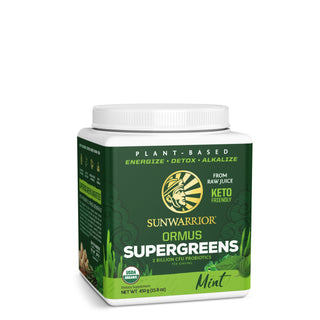
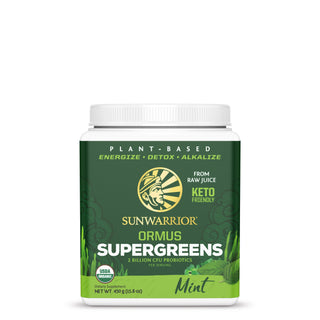
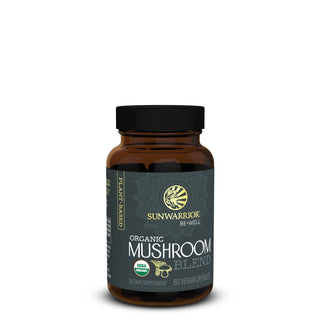
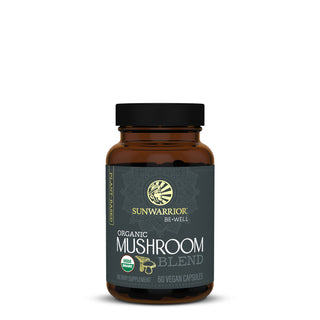


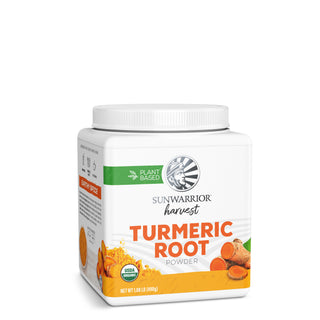
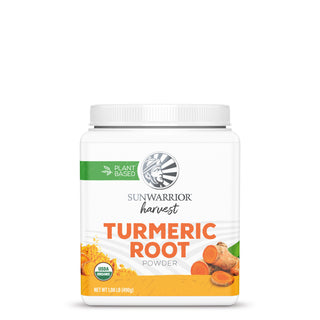









COMMENTS
Ola Brown
Information was easy to comprehend, thorough, and very informative.
adrophy chavengwa
thank you so much 💖